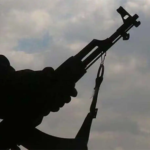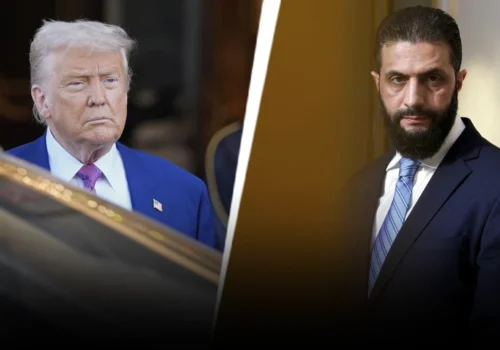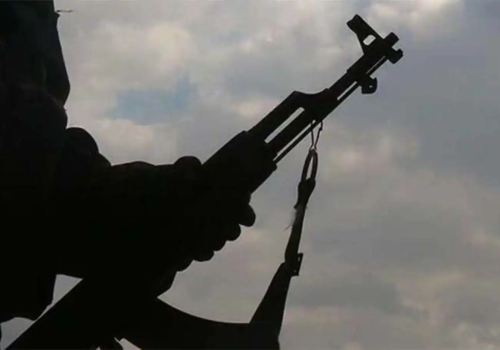Known as the West African branch of al-Qaeda, JNIM’s activities on the ground are no longer limited to establishing military superiority. The organization is becoming the new determinant of the social fabric by establishing an “alternative order” in areas where state authority has completely collapsed. The attacks in Burkina Faso in particular show the clearest signs of this transformation.
By targeting not just military units as well as urban infrastructure, symbolic institutions and prisons, JNIM militants aim to disable all representational structures of the established order. While the reconnaissance activities carried out using drones point to the organization’s technological adaptation capacity on the ground, the contacts established with the public after the attack showed that a managerial perspective was in place, not just a confrontational one.
Another noteworthy element in this transformation is that instead of using direct violence, the organization has drawn communities that feed on distrust of the state into its sphere of influence under the name of “protection”. The reprisals that followed the Fulani massacres in Solenzo, for example, represent a new kind of “social contract” that JNIM has established with Fulani communities.
As Human Rights Watch has emphasized, the state’s role in civilian casualties provides the organization with a basis for legitimacy. In that sense, JNIM is evolving from a classical insurgent organization to one that seeks to establish social order by filling power vacuums, acting in a triangle of conflict-politics-socialization. The issue is no longer just about which actor has more firepower, but who has more capacity to “govern”.
Power Building, Not Control
JNIM’s recent activities have transformed it from an armed insurgency into a political and social power-building organization. No longer does the organization see military success as the ultimate goal, but as a pre-requisite for a model of rule. For example, by targeting infrastructure, civilian volunteers or local security mechanisms, the organization is systematically undermining public trust in the state. This strategy shows that the organization is building a new sphere of power by targeting not only the enemy but also its social bases.
With this transformation, JNIM has shifted from controlling physical space to establishing order and claiming sustainability. By assuming functions such as enforcing its own law, providing security and distributing resources, it builds an alternative form of governance wherever the state is invisible. Thus, in the minds of the public, it is beginning to be perceived as a “permanent authority” rather than a “temporary threat”.
This perception creates a new ground on which the organization can also base its existence on consent. JNIM is no longer merely subversive, but also constructive. It is not content with deactivating the state, it is producing symbolic and functional apparatuses to replace it. This takes it far beyond classical jihadist organizational formations: JNIM has evolved into a “shadow state”.
A Shadow Structure Settling in the State Void
The political fragility in West Africa is one of the most important factors determining the evolution of JNIM. The gaps in authority created by the collapse of state capacity have led to the dysfunctionalization of a wide range of areas, from social services to the justice mechanism. In this vacuum, JNIM has not only produced violence but also infiltrated the sphere of governance.Against a state that is unable to provide health services, functioning courts and security, the organization establishes its own justice.
Moreover, the organization seems to have established a “protective” relationship with the population by organizing the distribution of resources. This makes it possible for the organization to transform from a threat into an actor that is resorted to at the local level.By engaging directly with local people, JNIM is able to penetrate villages, towns and road intersections that the state cannot reach. Thus, JNIM is not only an armed structure, but also a hybrid mechanism that feeds on social crises, manages those crises and can react faster than international actors when necessary.
Where is it Evolving?
JNIM’s transformation process points to a model of political-ideological adaptation that goes beyond armed organizational structures in the classical sense. At the heart of this model is the ability to build a post-conflict order. The organization is no longer just a security problem; it is also a structure that claims an alternative governance. JNIM, which has a presence on the ground with its capacity to build rather than destroy, has gained a functional position to replace the central authority with its pragmatic relations with local communities and its rapid responses to the needs on the ground. This transformation shows that JNIM no longer aims to be a conjunctural actor, but a permanent power center.
This structural change is also reflected in the ideological formation of the organization. Instead of the absolutism of the traditional Salafist line, we are talking about a structure that is in touch with local cultures and can take flexible normative positions when necessary.This flexibility both puts the organization ahead of other structures in the field and provides it with a legitimacy framework that can reach wider audiences. Especially in a period of deepening ethnic, social and sectarian divisions in West Africa, JNIM’s capacity to manage this plural structure also strengthens it as an ideological actor. Thus, the organization becomes a hybrid political project with the potential to produce social structure.
At the international level, this evolution makes JNIM a more complex actor. It is now trying to gain visibility at the international level through indirect negotiations and indirect representations instead of direct confrontation. Its role as a stabilizer at the local level is likely to make structures like JNIM a “mandatory interlocutor” in the West’s approach to security and humanitarian crises in the region. This situation creates the need for a counter-strategy that needs to be shaped by ideological, diplomatic and socio-political means. JNIM has become more than a simple security threat. It is now positioning itself as a flexible and long-term actor capable of influencing regional balances.






